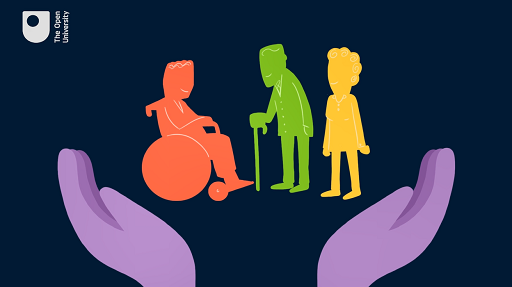1 The best care possible
We know that you only want the best care for your family member. Spend a few minutes thinking about this using the next activity.
Activity 1 What are the components of excellent care?
Our research project showed that there were three key elements to providing excellent care to older people with learning disabilities and behaviours that challenge others. Watch this short animation about the Quilt of Excellence. As you watch, think about the following questions:
- What do you and the family member for whom you care see as being the best care?
- What changes will you need to make in your life that will help you cope?
- What changes will you need to make to the life of your family member to help you all cope with planning ahead?

Transcript
Comment
You can see from the Quilt of Excellence animation that really good support for people with learning difficulties and their carers depends on supporting people to live well as they get older (e.g. having a good home and doing the things they really enjoy), supporting people to age well (e.g. helping them to cope with the physical, mental and emotional changes that take place as we age), and creating a caring environment for everyone concerned (e.g. looking after family carers and making sure the person with learning difficulties is in a nurturing environment).
Our research showed that while excellent does exist it is unfortunately far from universal. There is still much to do in terms of improving policy and practice in this area.
